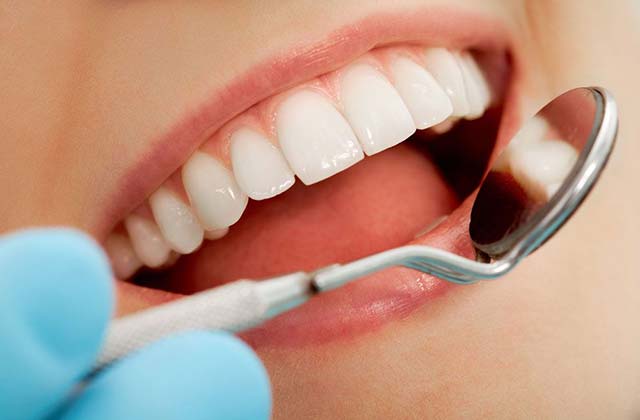
Learn How To Properly Care For Your Teeth
Can you confidently say that you take great care of your teeth in between dental appointments? Maybe you do certain things, but could you do better. Sure you could if you had more information, so keep reading this article to find out what you can do differently to help your teeth.
If you have questions for your dentist, write them down and bring them to your appointment. Once your cleaning and exam begin, it is hard to get a word in edgewise, especially with picks, pokers and mirrors in your mouth! Speak up beforehand, and a dental hygienist can answer your questions before your mouth is too full, or too sore to ask afterwards.
When brushing, you want to make sure that you are using the proper equipment. You want your brush’s bristles to be soft and comfortably fit your mouth. If you have pain in your hand or wrist that prevents you from brushing with a traditional toothbrush, give an electric brush a try.
Make sure you’re taking care of your teeth. You should floss, brush your teeth, and use an oral rinse at least twice a day. This can help prevent any problems from ever arising. If you’re unsure of what products you should be using, don’t be afraid to ask your dentist.
Believe it or not, saliva is actually your teeth’s best friend! Natural saliva contains minerals, enamel-strengthening antibacterial properties and the power to neutralize acid. If you are a woman over the age of 50, menopause may be causing dry mouth, which, then leads to bad breath. Specially formulated dry mouth products can help to eliminate embarrassing odors caused by a lack of saliva.
It is important that you get rid of your toothbrush about every two to three months. Eventually, the bristles on a toothbrush grow weak from over-useage. This prevents the toothbrush from actually cleaning your teeth and can actually cause damage to your gums. Also, if you’re sick, get a new toothbrush once you are better.
You should pay attention to your oral health even if you have false teeth. Brush your dentures like you would your real teeth. Brush or scrape a tongue scraper across your tongue to get rid of bad breath-causing bacteria.
If you notice an increase in cavities, consider taking a multivitamin. Multivitamins contain many vitamins and minerals necessary for enamel production. Enamel is the outer layer that hardens your teeth and protects them. Your diet should include a variety of sources of calcium, which is the building block of healthy teeth.
You need brush more than your teeth’s surfaces. You must also spend time brushing your gums, as this will help you to eliminate trapped food or debris. Cavities that are underneath the gums are the worst; therefore, you need to do all you can to clean this area.
To keep your teeth healthy, eat healthy snacks. When you do eat foods that are high in sugar, be sure to brush your teeth as soon as possible thereafter. This will reduce your chances of getting cavities.
Your smile is important, so take the proper steps to ensure good dental care. To help your teeth remain healthy, regularly brush and floss your teeth. By making sure you include an adequate amount of calcium and vitamin D into your daily diet, you can help maintain strong teeth throughout your life.
You should act on your dentist’s recommendations for tooth extraction and/or antibiotics right away. Any oral infection can actually spread to other locations in your body. Follow the dentist’s instructions to care for an infection, and take the antibiotics as long as they’re prescribed.
Everyone wants to have a bright, white, healthy smile, but that doesn’t mean it’s easy to achieve. Quitting smoking is one great stay. Another is to skip drinking coffee and red wine. The next step is to try home whitening. If that doesn’t work, consider asking your dentist for a quote on their services.
When brushing, don’t forget to rinse between rounds. You should finish all your teeth, then rinse. Then do them a second time, then rinse. Lastly, brush your tongue and then rinse again. You can use mouthwash for the last rinse or just water, if you prefer, as both work well.
Do not brush your teeth too vigorously or too often. This seems like it could be a great way to ensure that you have clean teeth, but it could damage your teeth and cause bigger problems. You should brush at least three times a day.
If you need to have a dental procedure, try not to stress out about it. Many people avoid visiting the dentist because they are afraid of what the dentist may say, or what may need to be done. If you avoid going to the dentist, you may end up with bigger problems than what you originally had.
A great method of keeping your teeth in the best possible shape is to explore the possibility of having dental sealants applied. These protective coatings made of plastic materials are placed directly on the chewing surface of the teeth. In this way you can take a proactive step that can ward off the development of decay.
When it comes to proper dental care, there really is no substitute for making and keeping regular appointments with the dentist. Receiving thorough cleanings and exams is always the best way to be proactive about dental health, identify problems before they escalate and ensure skilled, professional treatment if issues do ever arise.
If you want to add a boost to your oral health, consider gargling with apple cider vinegar. Do it in the morning along with brushing your teeth. The vinegar in this mixture can make your teeth whiter, and it also can kill bacteria that’s built up in your mouth.
Feel empowered with the information you’ve just read as you work out a much better system for taking care of your teeth on a daily basis. You will be glad that you did. Stay informed, and see what your dentist has to say next time you pay him or her a visit.
